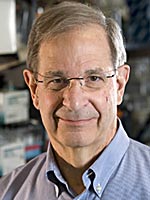
The Big Ten National Academy of Sciences seminar series continues with Michigan State University's James Tiedje at 4 p.m., Oct. 12 in E103 Beadle Center. The seminar and a 3:30 p.m. reception are free and open to the public.
Tiedje is director of Michigan State's Center for Microbial Ecology and a professor of crop and soil sciences and microbiology and molecular genetics. His lecture, "Mining Soil Metagenomes for Meaning," will focus on understanding microbe communities in soil.
"Soil houses the most diverse microbial communities resulting from its ancient history; complex sets of interrelating gradients; and protective, isolating, stable and relatively resource poor environment," Tiedje wrote about the lecture. "Because of the tremendous advances in DNA sequencing technologies, we now also see incredibly diverse sets of genes in soil communities. These genes and their host microbes catalyze vital functions such as nutrient cycling, organic matter decomposition, greenhouse gas flux, restoring water quality, and plant and animal health. While the new molecular and omic technologies provide the chance to understand and eventually better manage some of these communities, the analysis of the massive amount of sequence data is today’s challenge."
The lecture will include a discussion on the three components that support understanding of soil communities — their compilation of sub communities; the species and pangenome perspectives; and the beginning efforts to link sequence and function.
"I will use examples from soil and rhizosphere communities that include both shotgun and gene-targeted (amplicon) sequencing of key (eco)functional genes," Tiedje said. "Because of its diversity, the soil is arguably the most challenging frontier in biology."
More details at: http://go.unl.edu/txw